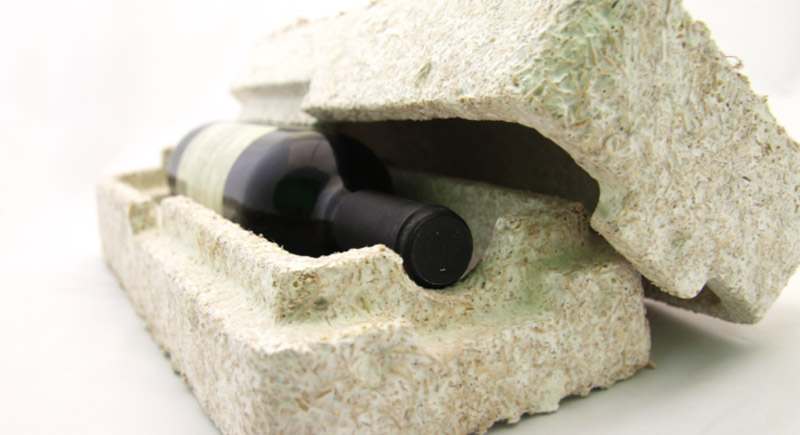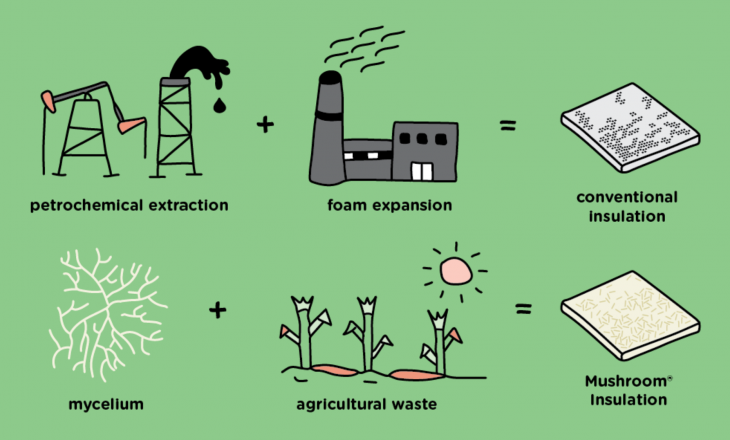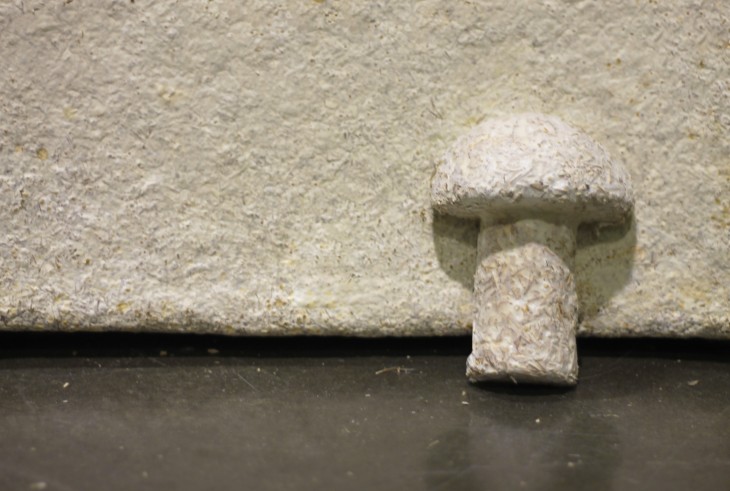As the world becomes increasingly aware of the detrimental effects of packaging waste on our environment, companies are seeking innovative solutions to address this pressing issue
One such company, Ikea, has recently decided to introduce a revolutionary packaging alternative that has the potential to reshape many industries.
By harnessing the power of mycelium fungi, this eco-friendly packaging material is not only biodegradable but also sustainable. This groundbreaking initiative has garnered significant attention and is poised to make a lasting impact on the way we package and transport goods.
But what exactly is mycelium packaging, and how does it work?
Why Mushroom Packaging?

- Polystyrene packaging is harmful to the environment and wildlife due to its non-sustainable production, long decomposition time, and ingestion risks.
- Ikea is introducing mycelium fungi packaging as an eco-friendly alternative to polystyrene.
- Mycelium packaging is made by letting mycelium grow around agricultural waste and can biodegrade within weeks.
- Mycelium packaging offers various benefits and applications, including cushioning large computer servers and being used by companies in Britain.
Environmental Impact of Polystyrene Packaging
Polystyrene packaging poses a significant environmental threat due to its non-sustainable production, long-lasting persistence, and harmful effects on wildlife.
The consequences of using polystyrene packaging are far-reaching and have long-term effects on our planet. Made from petroleum, a non-sustainable and heavily polluting commodity, polystyrene takes thousands of years to break down and is not biodegradable.
This means that the 14 million tons of polystyrene thrown into landfills every year will remain there indefinitely, contributing to the growing waste crisis. Additionally, wildlife that ingests polystyrene can suffer from health issues and even death.

Disturbingly, it is estimated that by 2050, 99% of birds will have plastic in their guts, largely due to the presence of polystyrene in our environment.
It is clear that immediate action is needed to address this environmental disaster.
Introduction of Mycelium Fungi Packaging by Ikea
As the detrimental environmental impact of polystyrene packaging becomes increasingly evident, Ikea has taken a proactive step towards sustainability with the introduction of mycelium fungi packaging.
In a partnership with Ecovative, Ikea is using this innovative packaging material as a biodegradable alternative to traditional packaging materials.
The mushroom-based packaging was invented in 2006 and is manufactured in Troy, New York. Already, Ecovative is selling its product to large companies, including Dell – which uses the packaging to cushion large computer servers. In addition, it is working with a number of companies in Britain
Mycelium, the root-like part of a fungus, is grown around agricultural waste to create Mushroom Packaging. This packaging can be disposed of by simply throwing it in the garden, where it will biodegrade within weeks.
The advantages of mycelium packaging over traditional materials are numerous. It is eco-friendly, biodegradable, and has a significantly lower carbon footprint. It also provides excellent cushioning and insulation, making it a versatile solution for various applications.
Ikea’s embrace of mycelium packaging showcases their commitment to sustainability and their dedication to finding practical solutions for a better world.
Benefits and Applications of Mycelium Packaging
Mycelium packaging offers a wide range of benefits and applications, making it a game-changing solution for businesses seeking eco-friendly alternatives to traditional packaging materials.
“The great thing about mycelium is you can grow it into a mould that then fits exactly. You can create bespoke packaging,”.
One of the advantages of mycelium packaging for e-commerce is its ability to provide a sustainable solution for reducing food waste.
Mycelium can be grown around agricultural food waste, transforming it into a biodegradable packaging material. This not only helps to prevent food waste from ending up in landfills but also reduces the need for petroleum-based packaging materials, which contribute to environmental pollution.
Additionally, mycelium packaging is versatile and can be used to cushion and protect various products, including large computer servers. Its ability to biodegrade within weeks when disposed of in the garden further adds to its appeal as a sustainable packaging solution.

What do you think? Do you like the idea of mushroom packaging for shipping products safely? We think is a very cool idea indeed.
